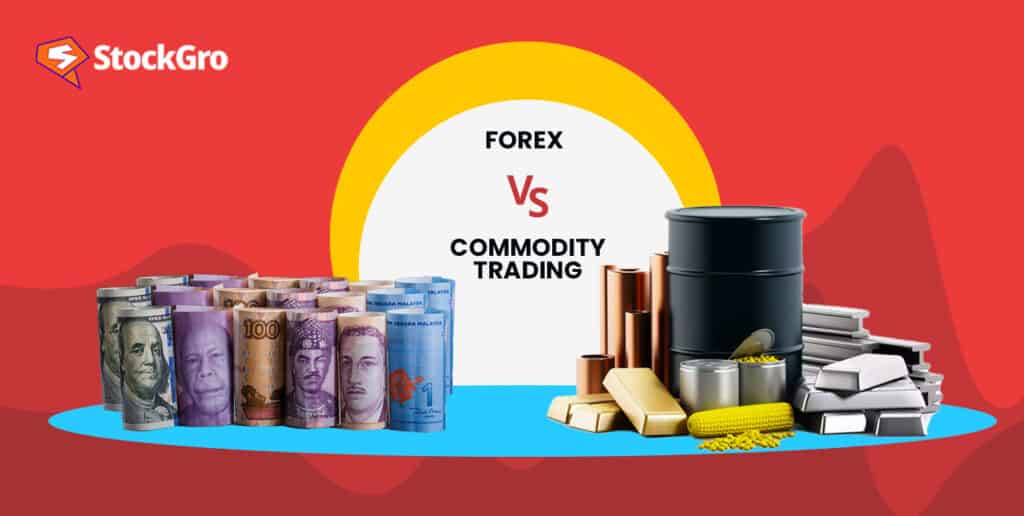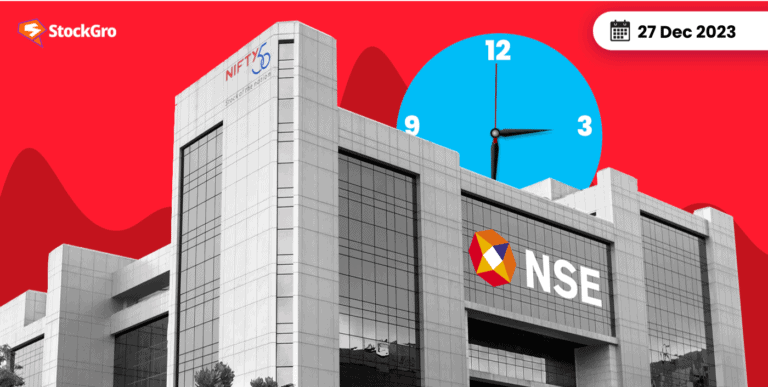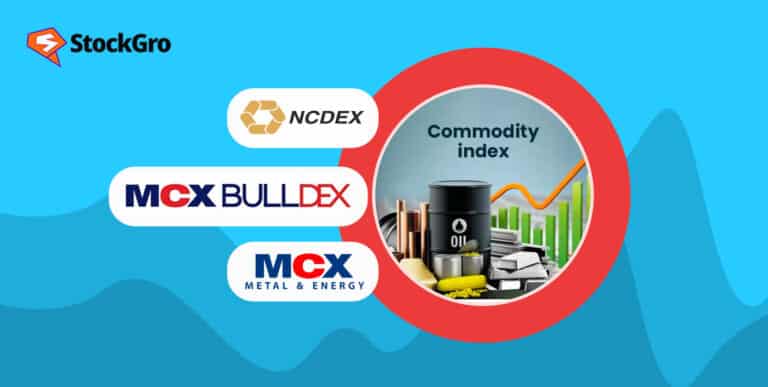
India’s economy is among the fastest-growing in the world at the time, and its financial sector is thriving. The forex and commodity markets are among the sectors that have experienced remarkable expansion in India.
Forex and commodity trading are two types of activities that involve buying and selling different currencies and goods in the global market. Both commodity and forex trading have benefits and drawbacks of their own, which require various approaches to be successful.
In this article, we will take a look into the fundamentals of forex and commodity trading in India and how they differ. Let’s begin.
Understanding the FX market: What is forex trading?
Forex trading, the abbreviation of foreign exchange trading, is, as its name suggests, exchanging one currency for another. Several purposes, including business, tourism, and facilitating global trade, may be carried out through FX trading.
Since currencies are exchanged in pairs in the FX market, a trader speculates whether the value of one currency will go up or down in relation to the other by exchanging it for another. To benefit from a currency’s price fluctuation, speculators may purchase or sell it. Alternatively, hedgers may do so to safeguard their accounts if their currency holdings experience a negative shift.
Financial organisations like banks, companies, investment firms, hedge funds, and retail traders take full benefit of the forex market.
The FX market is the most significant among all financial markets worldwide, open 5 days a week. Since all trading is done electronically over networked computers, a critical aspect of the forex market is the lack of a centralised trading system or exchange.
You have most likely already engaged in the foreign exchange market whether by purchasing foreign currency when travelling abroad or placing orders for imported goods like shoes or clothes.
The FX market is driven by supply and demand. For example, if Japanese investors buy British Pounds with Yen, the Pound will rise, and the Yen will fall. This only affects the GBP/JPY pair and not other currencies.
Also read: All you need to know about the basics of forex trading in India
How does forex trading work?
In forex trading, you purchase an asset with a currency just like in any other transaction. In the case of foreign exchange, the market price informs a trader of the quantity of one currency needed to buy another.
For instance, the market price of the EUR/JPY currency pair indicates how many Euros are needed to purchase one Japanese Yen at the moment. Every currency has a unique code that allows traders to recognise it as one of a pair instantly.
In a way, this bears a lot of similarities to other markets in that you might look to purchase a currency if you believe its value will rise. We call this going “long.”
Similarly, selling the currency is your best option if you think its value will go down. Going “short” is the term for this in the FX market.
Depending on your time horizon, you may prefer different forex trading styles. Scalpers, day traders, swing traders, and position traders are some of the common types of traders that use forex. Each style has its own advantages and disadvantages.
What is commodity trading?
Before you begin trading commodities online, having a clear understanding of a commodity is important. Even though they can be used interchangeably at times, a commodity is far more different than a product. A commodity is any product that people use in their daily lives, such as food, metals, energy, etc. Goods, on the other hand, are consumable products, including jewellery or appliances. This is the main difference between goods and commodities.
The commodity exchanges in India offer a platform where traders can buy and sell standardised contracts for commodities. There are 6 major exchanges in India that allow commodity trading under the supervision of SEBI.
The commodity exchanges of India include:
- National Multi Commodity Exchange India (NMCE)
- Indian Commodity Exchange (ICEX)
- Multi Commodity Exchange of India (MCX)
- Bombay Stock Exchange (BSE)
- National Stock Exchange (NSE)
- National Commodity and Derivative Exchange (NCDEX)
If we zoom out and have a look at the global commodity market, one of the most well-known commodities exchanges worldwide is COMEX. It is a section of the Chicago Mercantile Exchange (CME) Group. Metals, including copper, gold, silver, and aluminium, can be traded on COMEX. For COMEX commodities, which are primarily used for hedging, deliveries are uncommon. COMEX is only a middleman and does not really supply metals.
The core of global commercial activity for years has been commodity trading. Commodity trading is based on real assets, such as crude oil and agricultural products, as opposed to equities or bonds. The history of the Indian commodities market dates back to 1875, before there was any online commodity trade. India’s commodity market is now seen as a profitable path for developing one’s wealth due to the nation’s long record of trading commodities.
Also read: Commodity swap: Meaning & how it works?
How does commodity trading work?
Suppose you have chosen to invest in a futures contract for copper on a commodities exchange such as NCDEX. You sign into this agreement at a price of ₹800 per quintal of copper. With NCDEX’s 5% margin requirement, securing this deal requires an advance payment of ₹40.
Let us now assume that the next day, the price of copper increases to ₹820 per quintal. You will see a profit of ₹20 in this instance, and your associated bank account will be credited with this sum. In contrast, you will lose ₹20, and your bank account will be credited with that amount if the price drops to ₹780 the next day.
Commodity trading allows you to use a small initial investment to control a large stake. However, this also comes with a higher risk, as commodity prices can change quickly. Investors in commodities markets need to be careful and alert in how they handle their investments.
Forex vs. commodity trading: Know the difference
There are some similarities and differences between commodity and FX trading. Both allow you to speculate on the short-term movement of the markets using currency futures on forex. Both also offer the opportunity of arbitrage, which means you can profit from the price differences of the same currency or commodity in different markets.
However, there are also some distinctions between commodity and FX trading. The forex market is less regulated than the commodities market, which has stricter rules. Commodities trade on an exchange, while FX trades over the counter through brokers or banks. This means that commodities have daily limits that can stop trading if reached.
Also read: Gold vs Equities- Which is the right investment option?
Conclusion
There are several financial instruments available for investment by all types of traders. There are distinct levels of complexity involved in trading commodities vs forex. Realistically speaking, neither is simple.
Both are good investments for those who want to diversify and access international markets. Some traders may find commodities trading easier to understand than FX, which is more complex. Commodities are more relatable, but that does not mean they are easier to trade. In a nutshell, both require time, money, and education to make profits.

